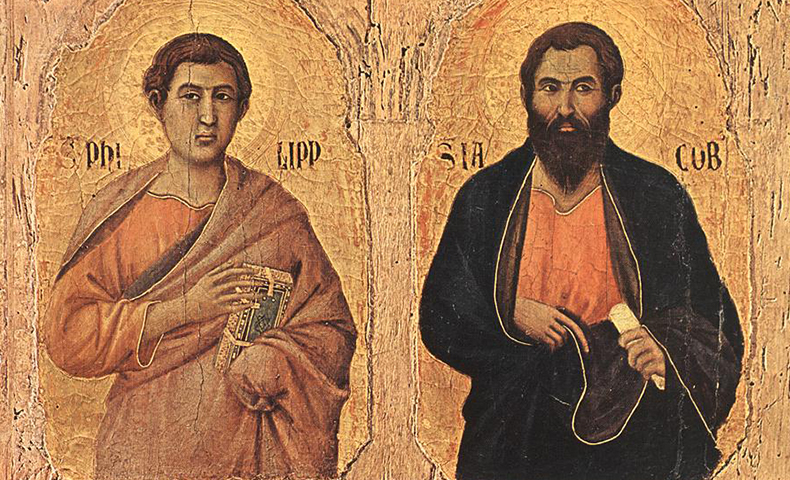
* * * *

It’s Thursday, May 7, 2020, and we are now in the eighth full week of the COVID-19 pandemic. And since wisdom begins with the definition of terms – said Socrates, at right – I’ll clarify.
To me, the pandemic hit full swing – the “stuff really hit the fan” – back on Thursday, March 12. That’s when the ACC basketball tournament got cancelled, and March Madness and college baseball were called off. About that time too the NBA, NHL and and other major professional sport seasons all ended. (For what those college sports mean to me, see June 2018’s “Unintended consequences” – and the search for Truth, and February 2019’s On my “mission from God.”)
So my definition of the “First Full Week of the Covid-19 Pandemic” has it starting on Sunday, March 15 and ending on Saturday the 21st. And the pandemic shows no signs of abating, which means we’ll get used to a “new normal.” (With social distancing, extreme caution and shortages of all kinds.) So what did people do in the Olden Days when disasters struck?
One answer comes from the 1759 novel Candide, by Voltaire. It opens with the hero – Candide – “living a sheltered life in an Edenic paradise.” But from there things go downhill:
The work describes … Candide’s slow and painful disillusionment as he witnesses and experiences great hardships in the world. Voltaire concludes Candide [by] advocating a deeply practical precept, “we must cultivate our garden,” in lieu of the Leibnizian mantra of Pangloss, “all is for the best” in the “best of all possible worlds.”
Or as Voltaire put it in another setting, “Life is bristling with thorns, and I know no other remedy than to cultivate one’s [own] garden.” (Voltaire’s Solution to a Life Full of Thorns.) And speaking of Eden – as in “a place or state of great happiness [or] an unspoiled paradise” – that seems to be what we used to have, before Covid-19. Or at least it seems so in hindsight…
Then there’s what historian Kenneth Clark said in his 1969 book Civilisation, about what some people did during a time of great upheaval. (Like today’s.) Writing about the violence brought on Europe by the Protestant Reformation, he said that whatever the long-term effects,
…the immediate results were very bad; not only for art, but bad for life. The North [of Europe] was full of bully boys who rampaged around the country and took any excuse to beat people up… All the elements of destruction were let loose.

So a great upheaval – with elements of panic and destruction “let loose” – can come from either other people (“bully boys”) or from nature itself. So what do we do, in the process of riding out this storm? Or as Clark put it, “What could an intelligent, open-minded man do in mid-sixteenth-century Europe?” Or for that matter, here in America this 2,020th “year of our Lord?”
His short-and-sweet answer, “Keep quiet, work in solitude, outwardly conform, inwardly remain free.” Which as a result of the European wars of religion created a figure new to Europe but “familiar in the great ages of China: the intellectual recluse.” (Which at this point evokes – to the writer anyway – the old Maynard G. Krebs repeated line, “You rang?“)
Yet another answer is to “Keep on keeping on.” As in, “to persevere,” which means to persist or remain constant to a purpose, idea, or task in the face of obstacles or discouragement. Which brings us to the discipline of continuing our Daily Bible Reading. And that includes but is not limited to tracking liturgical feast days. In turn, the last major Feast Day was Friday, May 1. That was the feast of St. Philip and St. James, Apostles. (That link goes to the day’s Bible readings.)
I covered the day in Philip and James – Saints and Apostles (2016), and Saint Philip, Saint James, and “privy members,” from 2017. But for starters, the article Saints Philip and James the Lesser – New Daily Compass explains one reason why the two saints are remembered together:
The two apostles Philip and James the Lesser are remembered with a single liturgical feast because their relics, transferred respectively from Hierapolis and Jerusalem, were placed together in the Basilica of the Twelve Holy Apostles [“Santi Apostoli“] in Rome.
The 2016 Philip and James noted great confusion about this James (“the Lesser”) in part because of the number of Jameses in the New Testament. (It also explains the reference to “privy members.”) Fortunately we know a lot more about Philip, and especially that he serves as a lesson that God’s love is universal. As shown in the story of Philip and the Ethiopian eunuch.
The post starting by noting that as a eunuch the Ethiopian was beyond the pale – if not untouchable – from a “legal” standpoint. See Deuteronomy 23:1, which in the King James Bible – the one God uses – puts the matter rather delicately: “He that is wounded in the stones, or hath his privy member cut off, shall not enter into the congregation of the LORD.“
Yet Philip, guided by God’s Spirit, does not hesitate to share the good news of God’s love and salvation with this less than whole Ethiopian and to baptize him into the faith, to welcome him into the life of the Christian church. This new faith is for all, God’s love is for every human being no matter what disability or disease or affliction has come our way.
(See “Wesley Uniting Church.”) In other words, the point of Acts 8:26-40 – Philip and the Ethiopian eunuch – is that God’s Love is Universal. (See also Jonah and the bra-burners.*) So here’s to “Philip and James – Saints and Apostles,” and their Feast Day. And furthermore, here’s to a God whose love is so universal that He’s willing to accept anyone. (Who turns to Him. See John 6:37.)
* * * *

* * * *
The upper image is courtesy of Saints Philip and James – Franciscan Media. Caption: “Image: Detail of reredos | Polytych by Maestà | Wikimedia.”
Re: The ending of Candide. Wikipedia had the ending – “we must cultivate our garden” – translated into French, “il faut cultiver notre jardin.” But see also Candide Conclusion Summary & Analysis from LitCharts, which worded the ending as “All that is very well … but let us cultivate our garden.”
Re: Kenneth Clark. The quotation from Clark is from the hardcover book version of his Civilisation (TV series), at page 161. For an interesting sidelight on “Sir” Clark, see A new book reveals Kenneth Clark was also a bed-hopping, wife-stealing rogue.
Though ostensibly a happily married man with a dutiful and caring wife … he couldn’t keep his manicured hands or his swooning heart away from other women. He was a serial adulterer, a constant seeker of affairs, even [the] wives of his close friends. This upright pillar of the Establishment was … as one of his detractors put it most succinctly, ‘a frightful s**t’.
Re: “Santi Apostoli, Rome.” See Wikipedia, which noted this “6th-century Roman Catholic parish and titular church and minor basilica in Rome, Italy, dedicated originally to St. James and St. Philip whose remains are kept here, and later to all Apostles.
Re: “Jonah and the bra-burners.” See the January 2015 post:
Clearly, the Book of Jonah … is the product of that school of Jewish thought which was universalist and which opposed the nationalist view… It is the universality of God and the attribute of divine mercy that are the lessons of Jonah. Those who think of the book as nothing more than the story of a man and a whale miss the whole point.
And finally, a side-note. On this May 7th I was listening to a “Great Courses Plus” course on the Old Testament. This lecture included the story of Adam and Eve, and what caught my eye was the inclusion of the term “who was with her” to Genesis 3:6. A similar conclusion – to the lecturer’s – was reached in PerryDox – BeJustAChristian » Genesis 3:6:
I have concluded this is an adverbial phrase which has great meaning. It helps the reader understand what really happened. Sadly, that means Adam could have stopped Eve since he “with her” and not deceived. Instead, he abdicated his leadership … and allowed her to usurp his authority… Adam was “with her” the entire time physically; but when Eve needed him, he was absent spiritually.
I will explore this topic further in a future post.
The lower image is courtesy of The Baptism of the Eunuch – Wikipedia.